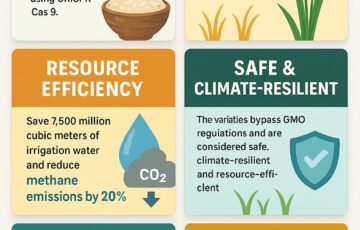Switzerland Suspends MFN Clause in Tax Agreement
Why in the news?
Switzerland suspended the MFN clause in its DTAA with India, citing lack of reciprocity. Effective January 2025, this move could lead to higher taxes on dividends, impacting investments and businesses between the two countries.
Suspension of MFN Clause in Tax Agreement:
- Switzerland has suspended the Most-Favoured-Nation (MFN) clause in its Double Taxation Avoidance Agreement (DTAA) with India, effective January 1, 2025.
- The decision follows a 2023 Indian Supreme Court ruling that MFN benefits under DTAA require explicit notification under the Indian Income Tax Act.
- Swiss companies like Nestlé will face higher withholding taxes on dividends paid in India, impacting their financial commitments.
Reasons and Reciprocity Concerns
- Switzerland cited a “lack of reciprocity” in the DTAA’s implementation, claiming India offers better tax rates to other countries.
- Tax experts highlight that the move could impact investments from Switzerland to India, as higher tax rates on dividends will apply.
- Despite the suspension, the Swiss Embassy clarified that the broader DTAA and other bilateral treaties remain unaffected.
Impact on Businesses and Investments
- Swiss investments in India totaled $35 billion in 2021, with companies like Nestlé, ABB, and Novartis operating in diverse sectors such as machinery, pharmaceuticals, and cleantech.
- Around 140 Indian companies, including Infosys, TCS, and Wipro, have investments in Switzerland, focusing on technology and life sciences.
- Experts predict higher tax liabilities for Indian firms operating in Switzerland and warn of potential shifts in bilateral treaty dynamics, emphasizing the need for alignment in treaty interpretations.
About the ‘Most Favoured Nation’ (MFN) Status:
- Definition: WTO members commit to equal treatment, benefiting from lowest tariffs, highest import quotas, and minimal trade barriers.
- Origin: MFN is a cornerstone of the post-WWII multilateral trading system.
- Exceptions: Bilateral trade deals or special market access for developing nations.
- Outside WTO: Non-members (e.g., Iran, Belarus) face unrestricted trade measures.
- Significance:
- Promotes rules-based trade, reducing power-based distortions.
- Encourages free trade, allowing efficient outcomes.
- Ensures equal treatment for smaller, disadvantaged nations.
- Provides access to larger markets for industrial growth
Sources Referred:
PIB, The Hindu, Indian Express, Hindustan Times






